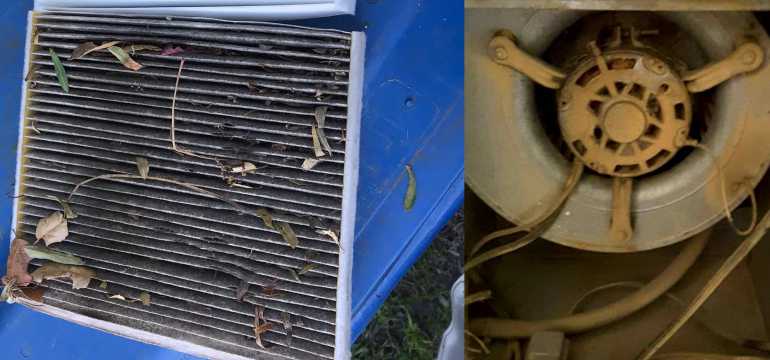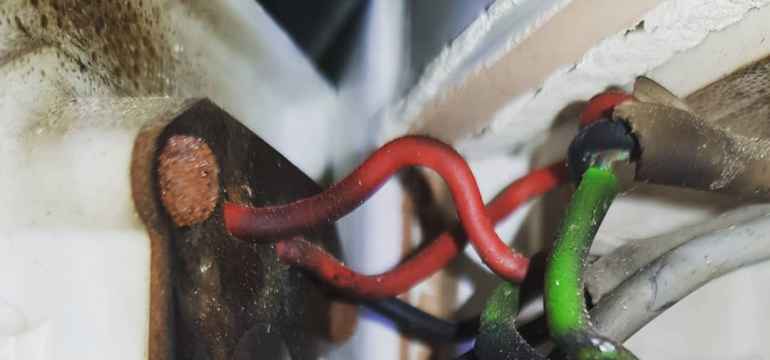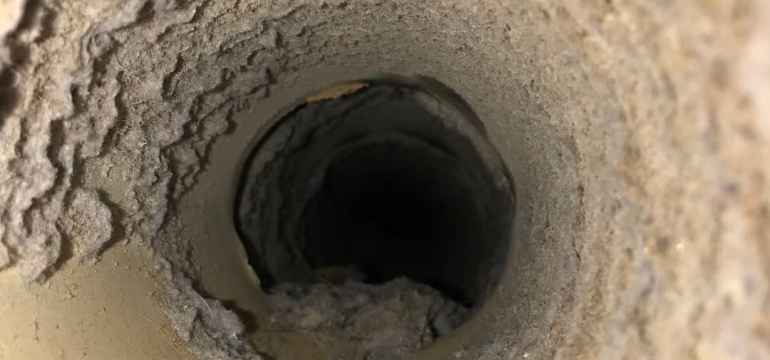If you have a burning smell coming from your vents, it’s easy to get worried. You might think that there’s a fire. Or that your HVAC system has totally broken down. But the truth may not be that severe.
- Your HVAC heating system collects dust over the summer when you’re not using it. This means that when you first turn it on, that dust can burn for a while. That being said, if the burning smell doesn’t go away after 30 minutes, something in your furnace or heat pump is likely overheating.
- Similarly, if you see smoke coming from your vents, it could be a sign that you have some debris in your duct system. This can cause lasting damage to your HVAC system and cause a fire.
- If you’re using your AC for cooling in summer, it mostly means a component in your AC is overheating.
But don’t worry. We’ll cover all of the potential causes and solutions for a burning smell coming from your vents in the sections below. Keep reading to learn more.
Here’s what the burning smell from your vents could mean
If you’ve allowed your HVAC system to run for 30 minutes and still smell burning from your vents, then it’s time to turn your system off immediately. The continued smell is likely coming from one of these sources:
- Overheating components
- Electrical issues
- Debris in the duct system
We’ll take a closer look at these problems and their solutions in the following sections.
1. An overheating component

First, the burning smell that you’re getting could be coming from a part in your HVAC system that’s overheating.
The most likely culprit is the blower motor. This is a fan that pulls indoor air into your HVAC system and then pushes it out back into your home after the air has been cooled or heated.
Are you noticing loud or weird noises coming from your HVAC system? Or maybe the heating system is shutting off at random. These are two additional symptoms that can indicate an issue with your blower motor.
What you should do about it
- The first step toward fixing this problem is checking on your air filter. Try to see if it’s dirty or not. If it is dirty, replace it with a new one, as a clogged air filter will limit the amount of airflow that your system receives. This puts lots of strain on the HVAC unit, which can lead to overheating and a burning smell.
- You may also want to try cleaning between the fan blades and motor housing. When too much dust and dirt accumulate, it may not be able to vent all of this on its own. That can lead to overheating and the smell you’ve been getting. You can use a toothbrush or a paintbrush to clean this out.
- It may also be necessary to replace your capacitor. This is a cylindrical-shaped device that’s typically located on the side of your motor. You may notice the burning smell immediately when you turn your furnace on. If you do, that’s a sign that the electrical wires that supply power to your capacitor could have issues.
- Some HVAC units use a part called a belt-driven blower fan. If yours has one of these, then you’ll likely need to replace the fan belt. This is made of rubber and can sometimes burn when it’s having to work too hard. So if you smell burning rubber, this could be your issue.
- Finally, it’s also possible that you may need to replace your motor entirely. The costs for this can range from about $500 to $1,600. But before you pay this price, remember that most HVAC systems are designed to last for 10-15 years. So it could make more sense to replace your entire system if you’re going to need to do so soon anyway.
2. An electrical issue

It could also be an electrical issue that’s causing the burning smell. Issues related to this tend to smell like burning plastic or even fish.
If you notice any hints of smoke whatsoever, the first step is to turn off the power to all of your appliances. You may even want to shut off power at the main circuit breaker just to be safe.
Burning smells can also indicate that there’s a dangerous electrical failure somewhere within your HVAC unit. The wires in your AC system are all covered in plastic, and this can get burned through when the motor is pulling in more power than it should under normal circumstances.
Short circuit issues
A short circuit can happen for many different reasons, including:
- Damaged insulation
- Exposed electrical circuits
- Loose connections
- Damaged wiring
- Defective circuit breaker
- Power surge in your HVAC system
When you get a short circuit, it might cause the wires or insulators to melt, which can produce a burning smell. So be sure to check those to see if that’s the source of your issue.
You can also look for worn-out electrical connections and wiring. This can be caused by heat, age, bending, and corrosion. You might also inadvertently damage a wire while working in the area.
All of the outlets and switches in your home should be cool to the touch. If one of them is warm, or if you notice scorch marks, this could be your problem.
It’s also possible that you’ve got rats or mice in your walls, and they’re chewing on your wiring and causing this damage. You might notice droppings or other signs of rodent infestation to corroborate this.
If you notice any type of crackling, sizzling, or buzzing, be sure to shut it all down immediately, as these are signs of a serious problem. The best solution is to hire an electrician to come out and look at your home.
An electrical overload
You may also want to consider if you’re having to reset your circuit breakers more often than normal. This can be a sign that you’re putting too high of a load on your circuits, which you may need to assess the load with the help of a licensed electrician. Another sign you can look for is dimming lights whenever you turn on a vacuum cleaner or microwave.
A faulty transformer
It’s also possible that your transformer is damaged and that’s what’s causing your burning smell. When a transformer fails, it leads to a power surge. This power surge creates damage, which can lead to a burning smell.
Your transformer might go bad if you have a faulty contactor, loose wiring, or issues with your circuit breaker. You may also hear a vibrating or humming sound, which can be another sign of an issue with this part.
3. Burning debris in the duct system

When you smell burning coming from your HVAC vents, it’s also very possible that the issue is related to debris. When the weather changes, things like pine needles and grass cuttings can get into your system’s ductwork, which may burn.
It’s possible to clean your vents yourself (and we’ll tell you how to do it below), but it’s often easier to hire a professional to make sure the job is done right.
Step 1: Check your vents
The first thing you should do is open up your vent covers to see if you can visibly locate any dirt or debris that doesn’t belong.
Step 2: Check your return registers
You can take the same step for your return registers. Open them up and see if you notice a thick layer of dust coated on their interiors.
Step 3: Replace the filter
The next thing you can do is take the filter out of your HVAC system and check it. If the filter is clogged or excessively dirty, then you’re going to need to replace it with a new one.
Step 4: Check the furnace
Next up, you can take a look at your furnace. Examine the blower fan, furnace controls, and motor to see if you notice any dust or debris. Clean whatever you find in there with a rag.
Step 5: Look at your AC coil
You should also take a look at your air conditioning coil—especially if you find dust on your home’s interior walls, as this can be a sign that your air filter isn’t working properly.
Step 6: Turn off the power
Next, we’re going to turn off the power to both your heating and cooling units. Keep in mind that turning off your thermostat doesn’t accomplish this. You need to actually hit the power switch on the furnace or shut down the power at your breaker panel.
Step 7: Remove the air duct covers and clean them
Now that the power is off, you can safely remove your air duct covers and clean them. You can even use a vacuum to suck out hard-to-reach dust deposits.
Step 8: Clean your ceiling vents
Finally, you can finish cleaning out your ceiling vents. You can use a broom or vacuum if you can’t get it all on your own.
- What to Do if Your House Smells Like Gas but There’s No Leak - February 6, 2023
- Why Is There a Burning Smell Coming From My Vents? - August 16, 2022
- How to Remove the Musty Smell From Your Air Conditioner - August 16, 2022
